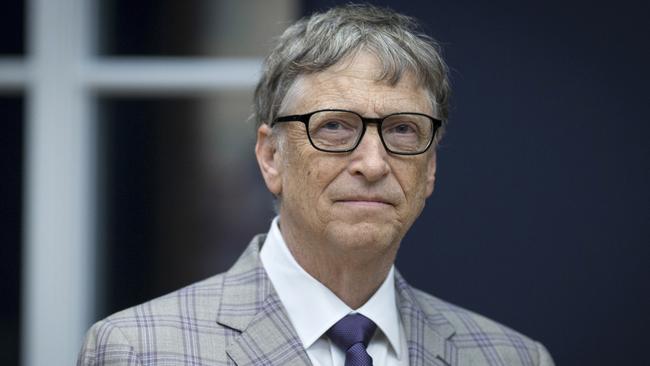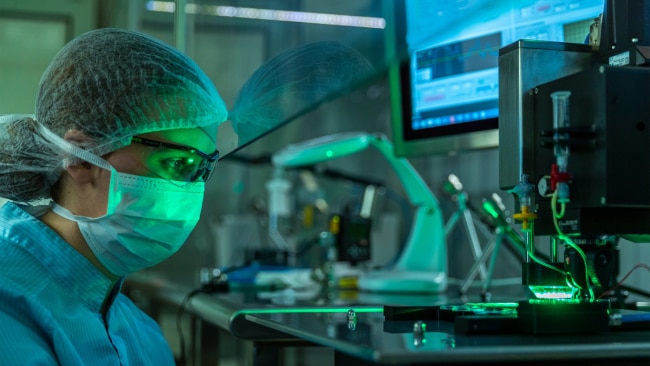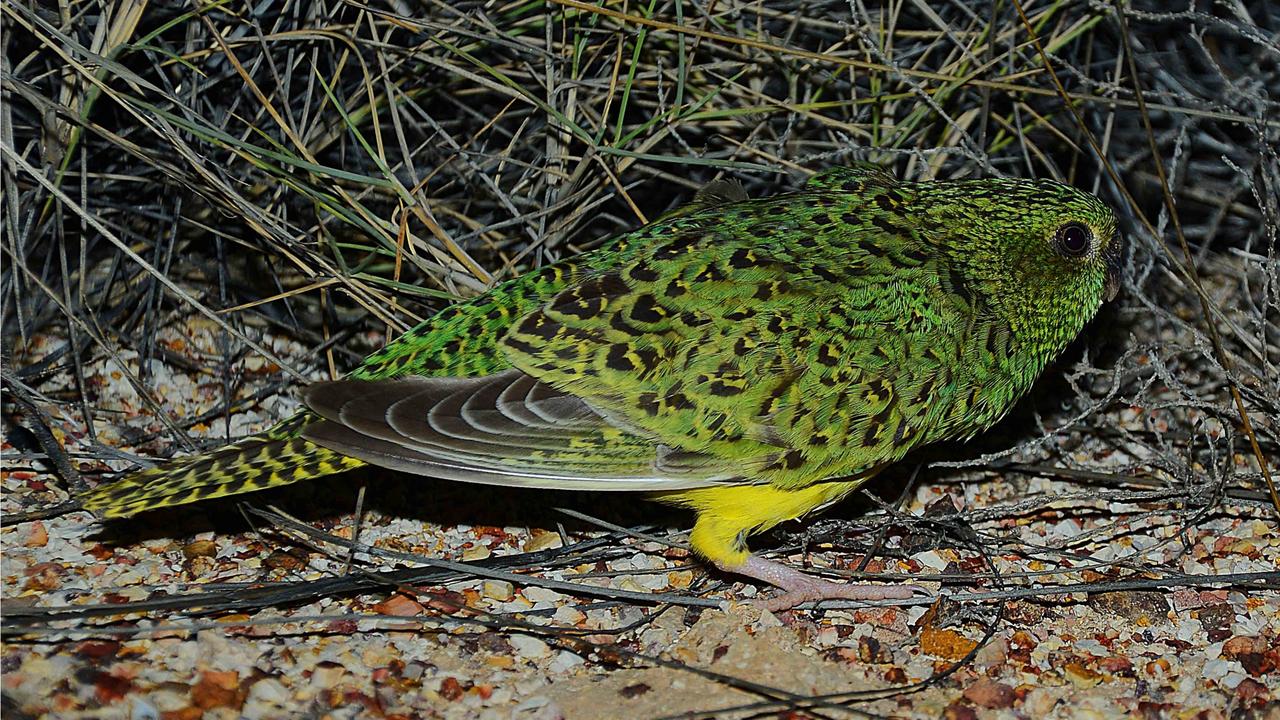Bill Gates asks for Australia’s help in ridding Asia of malaria
Bill Gates calls on Australia to become the regional champion of a historic drive to eradicate malaria from Asia within 10 years.

Bill Gates, the head of the world’s largest private charitable foundation, has called on Australia to become the regional champion of a historic drive to eradicate malaria from Asia within 10 years.
The Turnbull government will announce today that Foreign Minister Julie Bishop has joined a key global body, the End Malaria Council, co-chaired by Mr Gates.
The push to tackle malaria would be one of the most ambitious global health initiatives, coming at a time when progress has stalled on combating the disease, which kills 445,000 people a year, mostly children.
Ms Bishop told The Australian: “Malaria is one of the world’s most pressing health challenges and I am honoured to join this important group of global leaders in the fight against this serious disease.
“The Australian government will continue to invest strongly in health security, including malaria control and elimination, with a focus on increasing impact through partnerships.”
Mr Gates, head of the Bill and Melinda Gates Foundation, told The Australian in an interview in his office in Seattle: “To be a regional champion of getting rid of malaria, it’s kind of a natural role for Australia. There’s the group of regional (Asian) leaders (and) it hasn’t yet been as engaged as we’ve had in Africa but we think there’s an opportunity to re-energise that group if Australia decides to take a lead on it.”
Mr Gates, the founder of Microsoft and the world’s second richest man, said he believed that if Australia led a concerted regional drive against malaria, the disease could be eradicated from Southeast Asia as early as 2025.
He said there was an urgent need to step up the fight against malaria in Asia, which accounts for about 7 per cent of the world’s cases, because parasite-carrying mosquitoes were developing a resistance to a key drug, artemisinin. If this resistance were to spread to Africa, with 90 per cent of the world’s cases, it would be a disaster.
“The biggest scare is that we have artemisinin resistance in Southeast Asia ... that has not reached Africa yet,” Mr Gates said.
“So it’s a kind of race. The dream would be to clear Southeast Asia. And that’s partly where the partnership with Australia comes in.”
Mr Gates welcomed Ms Bishop’s inclusion on the End Malaria Council.
“Australia has shown strong leadership in the effort to eliminate malaria by investing in product development, strengthening health security systems and demonstrating regional approaches to disease elimination,’’ he said.
Malaria, a disease transmitted to humans by parasite-infected mosquitoes, was eradicated in Australia in 1981 but still exists through much of Asia and the Pacific including Indonesia, The Philippines, Vietnam, Cambodia, Myanmar, Papua New Guinea and islands such as Vanuatu and the Solomons.
Until recently, the fight against malaria globally was one of the great health success stories. With a combination of treatment and preventions technologies, global malaria deaths fell by 58 per cent between 2000 and 2015 and half of the world’s nations are malaria-free. But in recent years, the World Health Organisation says, investment in fighting the disease has stalled, allowing malaria to return in force.
Mr Gates, who will take his call for great global action on malaria to the World Economic Forum in Davos this week, said he wanted to see Australia lift its foreign aid closer to UN targets. Australia’s foreign aid budget has fallen to about $3.8 billion from $5.1bn in 2012-13 and its percentage of gross national income is now only 0.22 per cent, well short of the UN’s target of 0.7 per cent.
Despite foreign aid cuts, the Department of Foreign Affairs says Australia has recently boosted its focus on malaria. This includes establishment of the Asia Pacific leaders’s malaria alliance and a $300 million investment last year in the Indo-Pacific Health Security Initiative, which focuses on drug resistance. Australia is also a significant investor in the Global Fund’s regional efforts to combat malaria, contributing $220 million for 2017-19.
Cameron Stewart is also US contributor for Sky News Australia




To join the conversation, please log in. Don't have an account? Register
Join the conversation, you are commenting as Logout